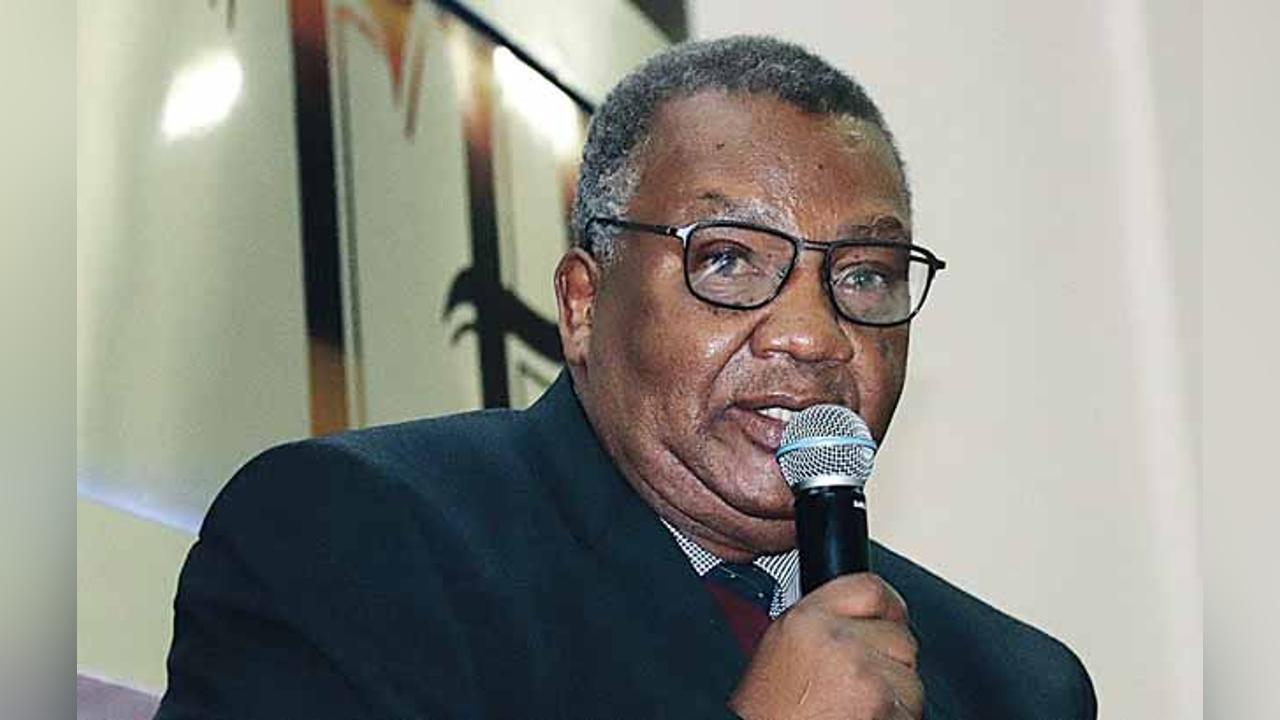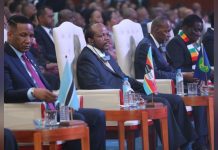Africa-Press – Eswatini. This year marks 55 years since His Majesty King Sobhuza II, in his wisdom, birthed Tibiyo Taka Ngwane, an entity which would, more than five decades later, be the cornerstone of the social, cultural and economic fabric of this country.
At the dawn of the then Kingdom of Swaziland’s independence in 1968, the country needed to chart a new path to a future it knew almost nothing about; a future that only existed in imagination.
One thing that King Sobhuza knew about the future of this new nation – or least imagined – is that it was to be prosperous, independent and peaceful.
As narrated by Prince Mhlambanyatsi, a senior member of the royal family, Tibiyo, as directed by King Sobhuza, started as a fund, whose initial income was from a number of sources, including businesses that existed at the time, and contributions from emaSwati in the form of cows, other sources claim.
One of the founding objectives of this fund – which was to grow into a multi-billion Emalangeni entity in asset value – according to the Prince, was to fund the education of younger emaSwati for the improvement of the quality of life. It was also to ensure that emaSwati were equipped to participate in and benefit from the economy of their newly-independent nation.
Having traversed five decades, providing support to the Government and offering assistance to communities and families across generations, one of the challenges that this organisation has, and continues to confront, is a fast-changing world of doing business, an economic environment that is deeply globalising and complex, as well as social needs that are becoming diverse, complex and costly.
Over the decades, a growing, and predominantly youthful population, rising levels of poverty, instabilities in the local and global economies, brought a plethora of challenges for Tibiyo Taka Ngwane’s income, meaning that its leadership had to adjust to the changing times.
To respond to these complex and multi-layered challenges, incumbent Managing Director, Dr Absalom Themba Dlamini, says the organisation has had to undergo different stages to transform itself into a modern entity, adopting 21st Century business practices, while sticking to its original mandate, as commanded by King Sobhuza. “For instance, you will remember that the tools of doing business have transformed drastically since 1968.
We have had to adopt newer and modern ways, such as ditching old manual processes for, IT-based systems, incorporate 21st century global governance and operational practices, recruiting and training younger professionals and so on.
So, over the years, the organisation has invested massively in transformation, to keep it in line with the changing demands for its services and support,” says Dr Dlamini, who counts himself lucky to have served the organisation through these years.
He joined the organisation as a young professional, rising through its ranks, and has been at the helm of most of its phases. Dr Dlamini’s vast experience is backed by a Master of Business Administration and several qualifications in finance and business.
We spoke to Dr Dlamini, and got him to reflect on the five decades of this giant entity.
From an outsider’s perspective, leading such an entity appears to be a massive assignment. What have been some of your exciting and challenging moments as the MD of Tibiyo Taka Ngwane?
Managing Director, Dr Absalom Themba Dlamini: Leading an entity as huge as Tibiyo Taka Ngwane, which has a mandate to build a nation and support economic growth, is not easy at all.
A lot is required from you as the managing director; it’s not just your technical expertise, but your leadership qualities, as well as your human side are often put to the test. Remember that when King Sobhuza formed the organisation, through the Royal Charter, he had his people at heart.
His vision was that his people at the time, as well as future generations should create and live in a country that would provide opportunities and resources that should allow them to develop themselves and sustain their livelihoods. In other words, the people should participate and benefit from the economy.
Those are the guiding principles of the organisation.
Over years, the conditions in which we pursue this mandate have changed, be it the economic environment, growing social needs etc. So, the models we may have used, say twenty years ago, to do business, may no longer apply today.
The levels of poverty and unemployment deepen, pushing more people towards the margins of the economy. Many look to Tibiyo Taka Ngwane to provide support, either a bursary, scholarship or any other need. Today, we speak of a well-functioning bursary and scholarship programme, which has supported thousands of emaSwati.
We do this with resources which shrink from time to time, particularly when income from investments takes a knock. We have also invested in some of the most critical sectors of the economy, including the sugar industry, financial, mining, agriculture and manufacturing sectors, among others, creating close to 20,000 jobs and job opportunities directly and indirectly.
I am happy that, even as the economic conditions become unfavourable at times, Tibiyo Taka Ngwane has been consistent in contributing to the economy, social cohesion and preserving our culture.
Fifty five years on, would you say the organisation is still pursuing the mandate set out by its founder, His Majesty King Sobhuza?
Managing Director, Dr Absalom Themba Dlamini: Without a doubt, yes. As I’ve already stated, King Sobhuza envisioned a nation that is self-sustainable, peaceful and progressive. We continue to invest massively in those areas.
And we continue to see emaSwati pursue careers and businesses because they got a scholarships from the organisation. We also see some communities and families becoming self-sustainable, because of a donation they received from Tibiyo.
But one of the most important indicators of this vision is a nation that is firmly in charge of its economy, particularly at a time when most economies across the developing world, in particular, are in foreign hands.
Share with us some of the key strategic successes of the organisation in the past five decades.
Managing Director, Dr Absalom Themba Dlamini: I have already mentioned that we have sustained our education support programme, which continues to provide access to education to all emaSwati, including the poorest, which transforms lives and families.
In other words, Tibiyo is a big contributor to the country’s skills pool. Our alumni are in almost all the sectors of the economy, and even beyond the borders of the Kingdom, where they are making a difference.
Our admission into the education support programme has increased in terms of budget and coverage. Today, we speak of at least 200-250 new high school bursaries every year. Of course, the demand is always higher than the available resources.
But, even as the organisation is recovering from the effects of the Covid-19 pandemic and the political unrest of June 2021, which left a huge dent on our balance sheet, this programme has been sustained; in fact, from last year, we increased the bursary from E2800 to E4000 per child per year. When you invest in education, you are not only transforming lives, you are directly skilling an economically-productive generation.
Our investment portfolio is also growing, against the rampaging economic challenges. In 2021, at the height of the pandemic, the organisation recorded a turnover of E331 million. This is a 28 percent increase from the previous year, which was E259 million. We recorded a profit of E288 million, a 30 percent increase from 2020.
All these developments happened when economic activity was at a standstill as a result of tight restrictions in trade and operations in some of the sectors in which we have an interest. One can attribute this to a number of factors.
First, over the years, we have built a strong and resilient entity, which has been able to cushion its investments from anticipated and emergency conditions. Secondly, our Main Committee,
Management and Staff, who bring different expertise and skills to the business, continue to provide the required guidance and effort, both at advisory and operational levels. Importantly, the guidance and support of His Majesty Ingwenyama and Her Majesty continue to give us confidence and direction as we navigate this tricky and complex business space.
Fifty five years is a very long time in history. A lot has happened in the country in this period – economic turbulence globally and domestically. Population growth and other changes, which, one imagines, have had a bearing on Tibiyo’s income statement and balance sheet. How have these changes affected the organizational and operational structure of the organisation?
Managing Director, Dr Absalom Themba Dlamini: You will appreciate that most of the organisation’s income comes from the different investments, through dividends.
Many of our investments are exposed to external factors, which shift from time to time. Sugar remains our biggest investment so far, through Royal Eswatini Sugar Corporation and Ubombo Sugar, where the organisation holds 53.1 and 40 percent respectively.
The past few years have been extremely tough for the sugar sector, as a result of global factors, climate change and rising costs in production, among others. Covid-19 made things worse, followed by sporadic attacks on sugar cane during the political unrest in 2021. So, put together, these scenarios had a huge impact on income from sugar, which, inevitably affected our social development spending, and our general operations.
As all this happens, we also face a number of social and economic demands, due to a growing population, deepening poverty and others. The demand for scholarships, bursaries and other donations grows remarkably, because, as I’ve already stated, many look up to Tibiyo Taka Ngwane for support.
And we cannot abandon our people, because it is our mandate to support the national development programme.
His Majesty, for instance, commanded that we can never abandon our bursary programme, because, rightfully, he believes that education provides many children with an exit door from poverty. So, even as the needs grow, we have increased the budget, because our view is that investment in education is investing in the future of this nation.
When you leave this organisation, which you have served so diligently all these years, how would you want to be remembered by those you leave behind and those who will come many years after your departure?
Managing Director, Dr Absalom Themba Dlamini: I would like to be remembered as a humble servant who gave his all to this entity and everything that it stands for.
I am not a hero or magician, because throughout my life here, I worked with teams, which consisted of individuals with whom we shared a mutual interest, which is to build our individual careers and keeping a nation in progress.
I would like to be spoken about as that young man who came through the gates with nothing but ambition, passion and commitment; that young professional who contributed his skills to shape the future of other professionals and helped such a big organisation to write its own story.
I want to be remembered for the many individual stories that we have helped to write and destinations we’ve helped to chart, of children who came here desperately looking for a bursary that changed their lives. Out of all the many things I could wish for, I would like my name to by synonymous with these stories.
How have you found working with His Majesty King Mswati III, as the principal of this organisation? What are some of the big ideas that you have exchanged with him in pursuing the objectives of Tibiyo Taka Ngwane?
Managing Director, Dr Absalom Themba Dlamini: I have worked with His Majesty for more than 30 years, both at Tibiyo and as Prime Minister of this country. In all these three decades, I have learned many lessons from him as a King and as an individual.
One of the personal attributes of the King is listening. I have benefitted a lot from this, because he listens to the views, thoughts and opinions that I present to him on the situation, challenges and future direction of Tibiyo.
This is one of the most important things I have learned from him, that as a leader, you must listen to those you lead. It gives you perspective, and it builds confidence and trust in your team.
The King has entrusted me with many responsibilities; some have really been humbling, while many have generally challenged me and taught me valuable lessons as a leader and as an individual.
These are too many to list, but one of the fondest memories of my interaction with His Majesty was when he bestowed me with an honorary doctorate in his capacity as the Chancellor of the University of Eswatini.
I had not expected this honour, and he had not even hinted that he would bestow me with any honour, let alone such a prestigious one. He has also challenged me on several occasions; I remember when he assigned me to facilitate the peace-making process in Madagascar, a task that I had never been prepared for.
But such vote of confidence from my leader and Head of State not only challenged me to rise to the occasion, but it also encouraged me to demonstrate to the world that emaSwati are as capable as any other nation to intervene in global conflicts.
As Tibiyo continues to chart the waters in the next fifty five years, what is your biggest wish for the organisation?
Managing Director, Dr Absalom Themba Dlamini: My wish for this organisation is simple; a healthy, long life, filled with successful and profitable investments.
I wish that it continues with the vision of its founder, King Sobhuza, and follow the wise guidance of His Majesty King Mswati III.
We must never forget that, just as King Sobhuza’s vision of Tibiyo was a prosperous nation, His Majesty Ingwenyama has made it clear that this organisation must remain at the core of social development, economic growth, social cohesion and cultural identity. I wish that we would continue to be guided by these goals.
Going back to the question of legacy, the late global icon, Dr Myles Munroe, once argued that a real leader creates and grooms leaders who will take over once they leave. Has Dr Dlamini groomed ‘lieutenants’ to take the baton from him when his time is done?
I certainly agree with the view. Leaders develop leaders, and that has been my guiding principle in all the assignments of leadership that I have undertaken.
Tibiyo has a programme in which our employees get skilled and re-skilled. As a result, we have a team of professionals with a range of academic and professional qualifications, from a bachelor’s degree, all the way to master’s degrees.
We motivate them and also provide resources, mainly financial. I hope that by the time I leave, one of my staff members would have enrolled for a PhD.
That kind of investment is critical for an entity like Tibiyo, because, remember we operate in an environment that is rapidly changing.
We need employees that are equipped with skills and expertise that are required and relevant to the market and the organisation’s operations.
To that end, I am proud to mention that in my time here, we have produced three lawyers, who are accredited and admitted by the country’s courts; we have also produced chartered accountants, holders of MBA and other reputable master’s degrees. These are the specialists that, I believe, will take the organisation to its next chapter.
We also recruit younger professionals from time to time, with the deliberate view to have them fill in some of the critical and sophisticated positions, and to have a good mix of young energy and experience, for purposes of seamless business continuity. Because we are serious and deliberate about business continuity and career progression, we have invested in our staff development at all levels – from entry level staff to senior management.
We have turned secretaries into graduates. Some of them are managers today, and others occupy professional positions.
But one thing that I have consistently emphasised to my team is that everyone who works at Tibiyo is essentially a leader in whatever assignment or portfolio they hold, and it is important that they provide leadership that will not only boost their individual profile, but that will also represent the brand, His Majesty as the principal and a nation that has placed its trust in the organisation. So, we emphasise integrity and professionalism.
For More News And Analysis About Eswatini Follow Africa-Press







